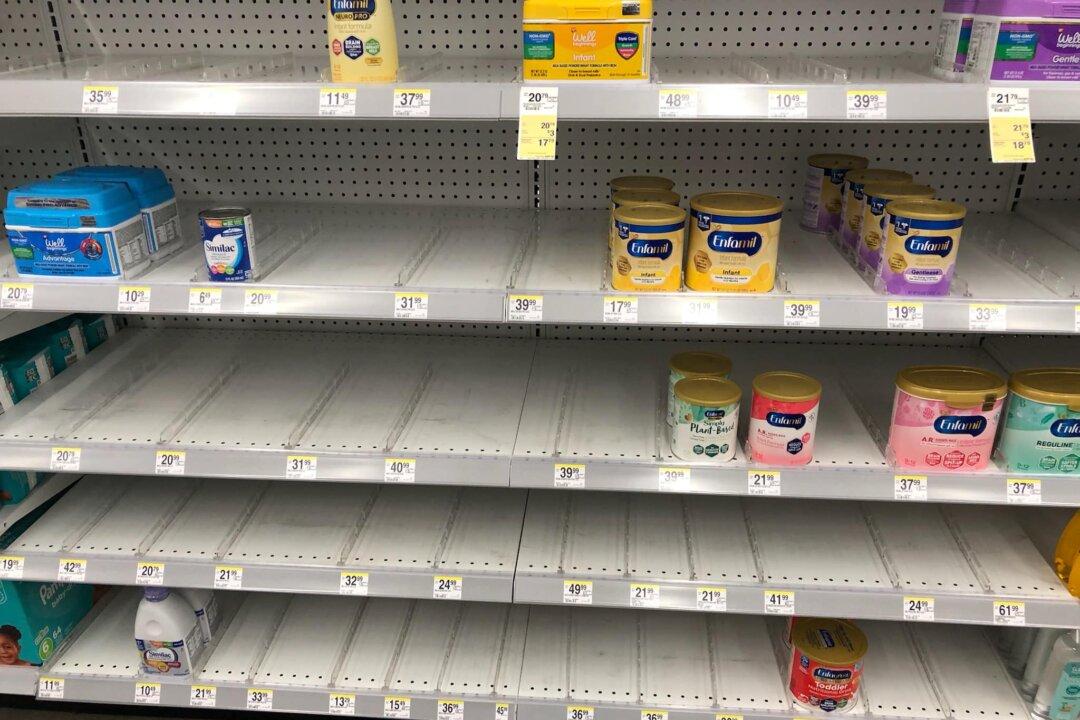A leading baby formula maker said that it could take at least two months to get its product back in stores amid a historic shortage of formula that has triggered panic nationwide.
Several months ago, Abbott Laboratories, was forced to close down its plant in Sturgis, Michigan, after the Food and Drug Administration (FDA) said its facility was unsanitary. That was triggered by an FDA investigation into the deaths of two infants allegedly caused by certain baby formula products that were contaminated by bacteria.





